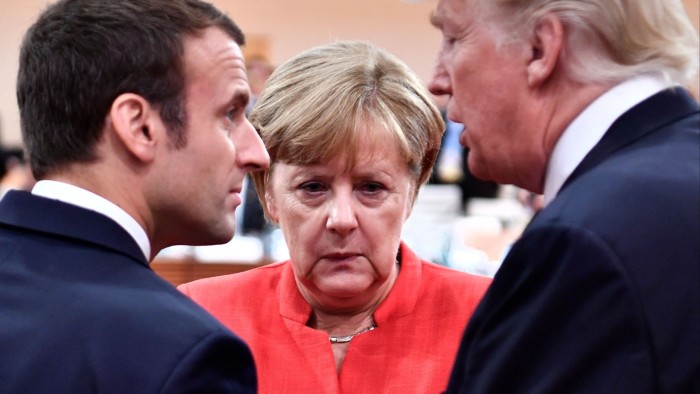Stay informed with free updates
Simply sign up to the Life & Arts myFT Digest — delivered directly to your inbox.
In the future, perhaps during one of her Baltic walks, Angela Merkel might reflect that calling her memoir Freedom, as Ukraine fights for just that against a Russia she did so much to enable, didn’t exude good taste. But let us be fair. The 700 pages after the title are worse. In a book of tireless self-pity, people are always underestimating the author. You are meant to conclude that she proved them wrong. You come away asking if they had half a point.
Merkel, a one-person case for constitutional term limits, is entitled to look out for herself. “I was the most damaging European leader since 1945,” was never going to be the gist of her book. To her credit, she doesn’t even use her best excuse: that a generic German chancellor of the period would have done the same things — on energy, on defence, if not on asylum — such was the then national consensus.
The people I’m keener to hear from are her fans. Why did western liberals fall for Merkel? Because she was a woman? No, they disliked Margaret Thatcher, and mistrust Giorgia Meloni. Because she was of the left? No, her party is centre-right, even if the exchange rate between German politics and the Anglosphere kind isn’t so neat. Because she let in a million refugees, then? She was hailed as the “Queen of Europe” well before that.
In the end, there was very little to Merkel-worship. Just a vague sense that she was a nice person and — crucially — that conservatives disliked her. Puddle-deep and tribal: the cult of Merkel was modern liberalism at its worst.
She herself has learnt no lessons from that era. But her former admirers still might, with some guidance. So here goes.
Lesson one. Scientists aren’t “better”. The line on Merkel was that while Britain was run by glib humanities graduates, here was a physicist-chemist who brought empirical rigour to government. Well, it wasn’t the silver-tongued Oxonians who showed an almost theological aversion to nuclear power. Even if Merkel did have a thirst for detail, she also had the corollary: no larger picture, no sense of the connectedness of things. Whether a nation is run badly (Britain in recent years) or well (Britain in former times), generalists will tend to be in charge. The academic bent of the elite at the age of 18 can’t be a variable that explains much. Stop worrying about the PPE degree.
Lesson two. Just because a person lacks outward charisma doesn’t mean they have inner depths. (Call this the Gordon Brown Fallacy.) In all likelihood, there is even less to them than meets the eye. Merkel was said to embody a “post-heroic” style of leadership. A great strategic mind was said to smoulder away behind that quiet exterior and that coy rhombus of a hand gesture. Yeah, no. She was a sphinx without a secret. It is a type of person that recurs not just in history but in workplaces everywhere, forever having wisdom and high talent read into them.
The last lesson? It is the one with the least chance of being heeded, I’m afraid. Bad people can have good judgment, and vice versa. An issue should be approached on its own terms, not on the basis of who stands where on it. Donald Trump was right that European defence spending was, with honourable exceptions, disgraceful. He was right that German energy dependency would help “expansionist foreign powers”. And despite the constant suggestion in Merkel’s book, none of this is hindsight. It’s just sight.
For a sense of the tribal shallowness that can overcome smart people, remember that Brits who hated “austerity” swore by this fiscal hawk. Not only did the tension not bother them, I’m not sure it occurred to them in the first place. What mattered was that Merkel, in some ineffable way, seemed to be on the right team. From there, the rest could be backfilled. Her policies? Her track record of judgment? Such a bore.
Nothing captured Merkel Mania like the meme of her at a G7 summit, literally bearing down on Trump, who is seated with his arms folded. As soon as the photo was released, its message was unmistakable: the exasperated grown-up and the petulant child. No image since Dorian Gray’s portrait has aged worse.
Email Janan at [email protected]
Read the FT’s review of ‘Freedom’ by Angela Merkel here
Find out about our latest stories first — follow FT Weekend on Instagram and X, and subscribe to our podcast Life & Art wherever you listen
Read the full article here




